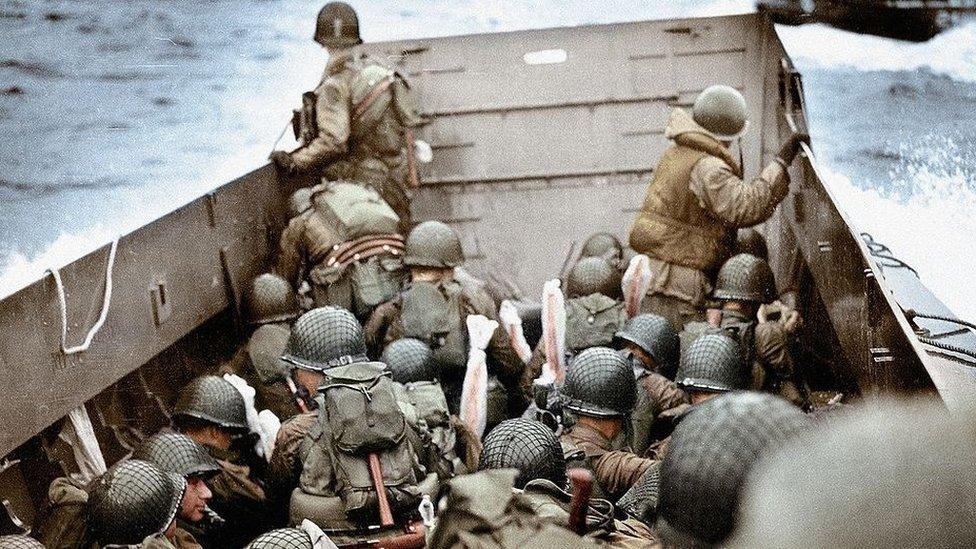Thank you cards for D-Day veterans
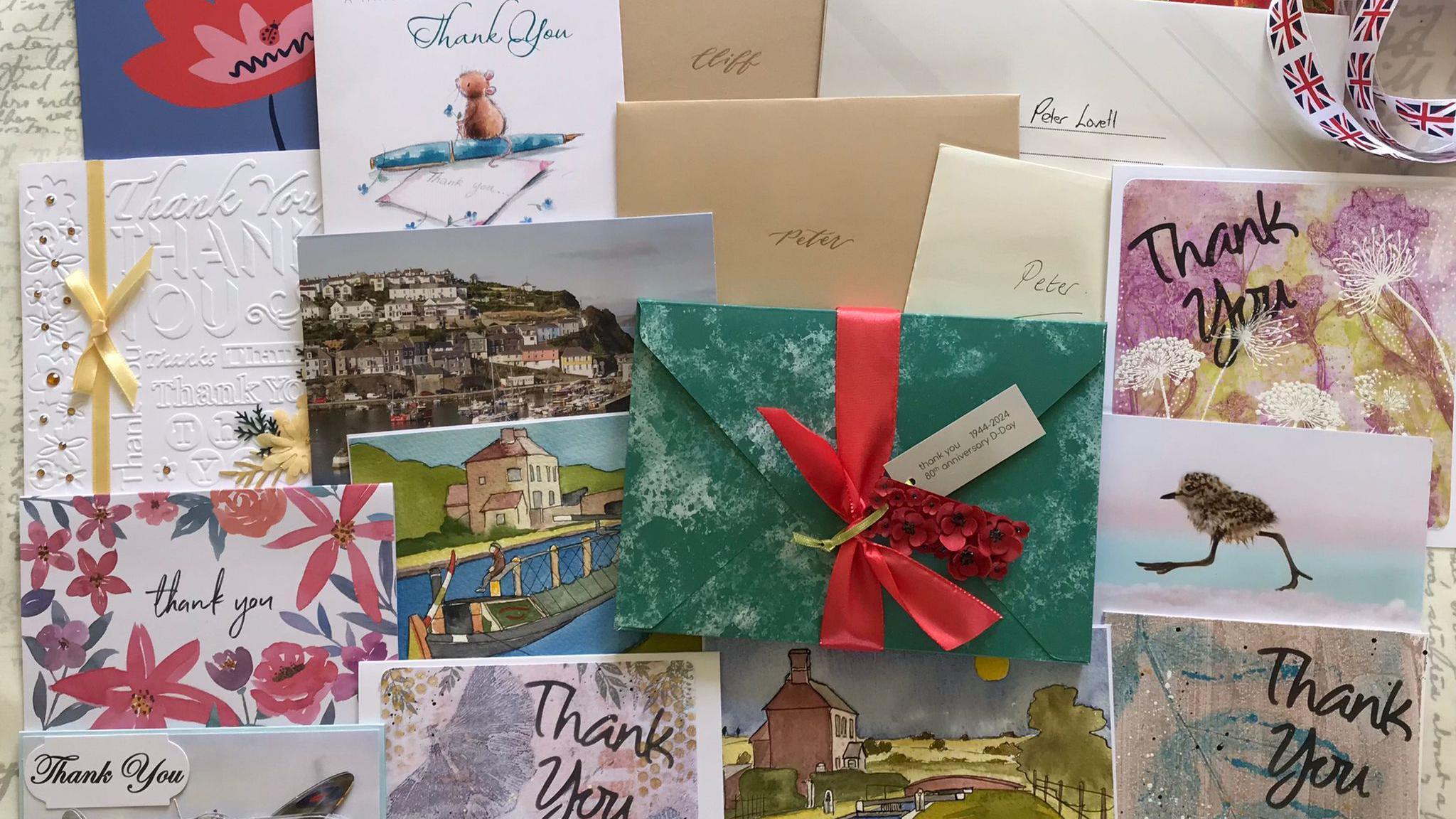
People have been sending thank you cards to D-Day veterans
- Published
People have sent thank you cards to D-Day veterans, 80 years since the Normandy landings took place.
Dinah Johnson from Swanage, Dorset, has organised the The D-Day 80 Thank You Card Drop for surviving World War Two veterans in the town.
She said: "The written word is really special and meaningful.
"This is a chance, while we can, to let them know that we care and remember what they did."
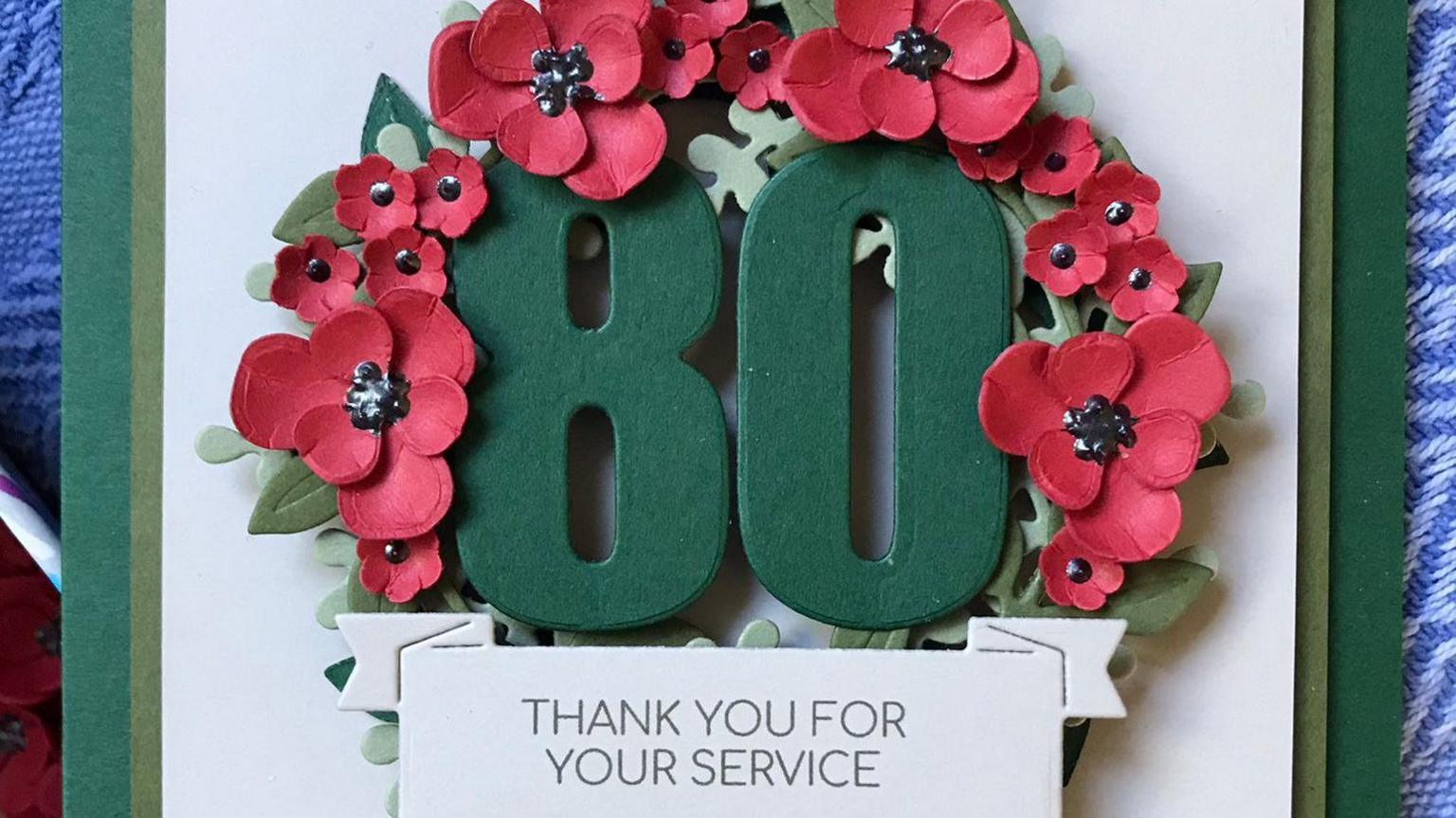
There have been 27 thank you cards sent so far, some of which are handmade.
Ms Johnson said she was inspired by the events of D-Day when she was a teenager in 1987.
"I’ve always had a soft spot for D-Day veterans." she said.
"My parents won a caravan holiday to Normandy when I was 15.
"We decided to visit the cemeteries and it had a profound effect on me because I was a similar age to some of the young men who died for my freedom."
She added: "All of the freedom and peace that they won came at a very high price and while it is still in living history it is important to remember it."
Ms Johnson said they have received 27 thank you cards so far, some of which are handmade.
Cliff Brown and Peter Lovett are the two surviving veterans in Swanage who will receive the thank you cards.
Ms Johnson said: "Sadly many of those who served on D-Day are no longer with us."
"Those who are still alive are understandably older and not always able to attend commemoration events.
"So I hope this is a way of bringing the thanks to them when they can't get to those events."
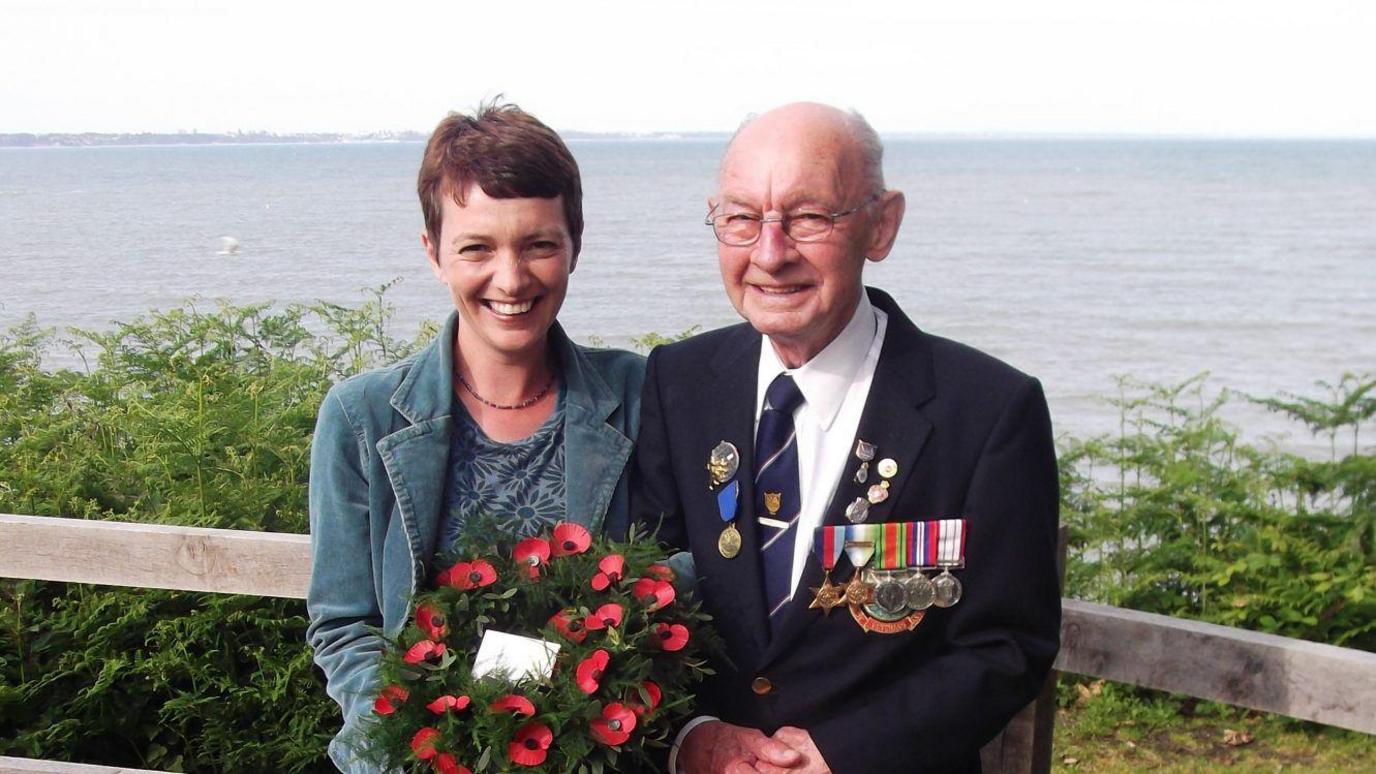
Dinah Johnson alongside Swanage veteran Cliff Brown 10 years ago at the D-Day 70 celebrations
Troops from the UK, the US, Canada, and France attacked German forces on the coast of northern France on 6 June 1944.
It was the largest military naval, air and land operation ever attempted and marked the start of the campaign to liberate Nazi-occupied north-west Europe.
It involved the simultaneous landing of tens of thousands of troops on five separate beaches in Normandy - known as the D-Day or Normandy landings.
Many rehearsals and training exercises were carried out along the Dorset coastline.
Follow BBC South on Facebook, external, X (Twitter), external, or Instagram, external. Send your story ideas to south.newsonline@bbc.co.uk, external or via WhatsApp on 0808 100 2240, external.
Related topics
More on D-Day
- Published23 February 2024
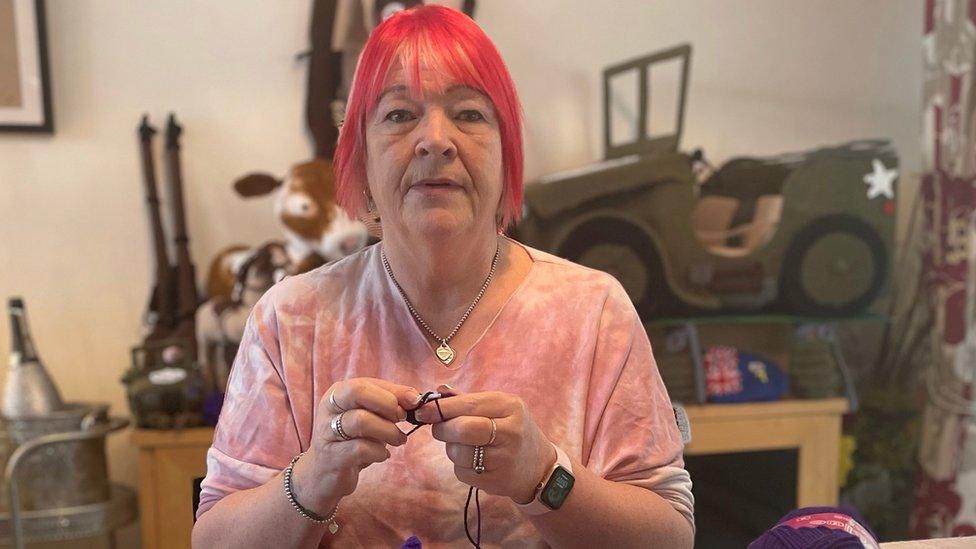
- Published17 February 2024
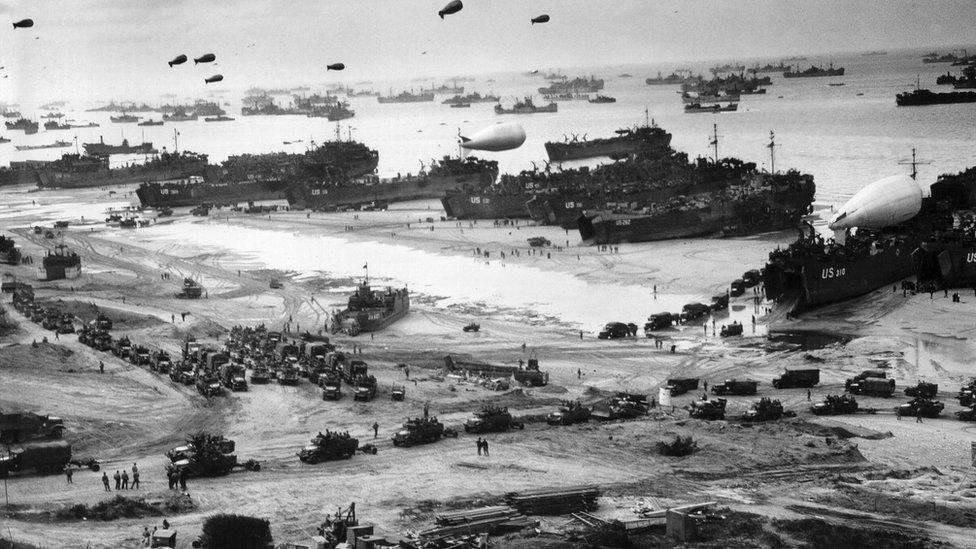
- Published6 June 2024
